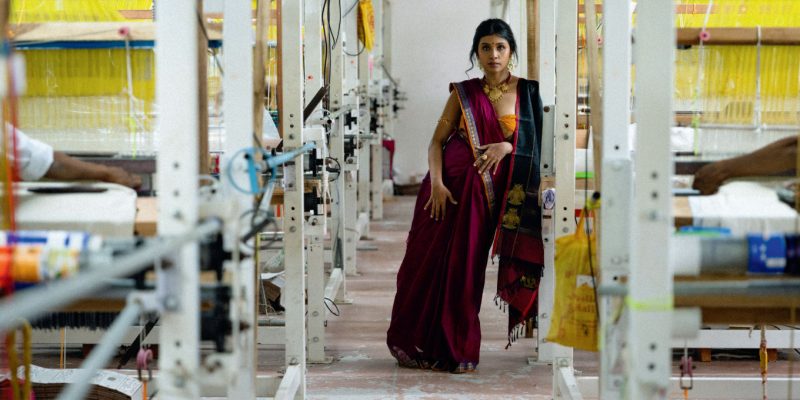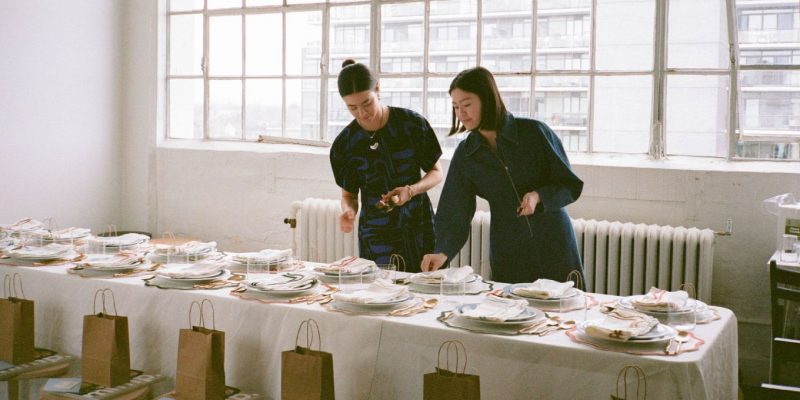Culture
A Time to Heal
In her bombshell lawsuit against actor Shia LaBeouf, singer FKA twigs accuses her former boyfriend of sexual battery, assault and infliction of emotional distress. In this unfiltered interview, she opens up exclusively to ELLE about her ordeal.
by : Marjon Carlos- Apr 8th, 2021
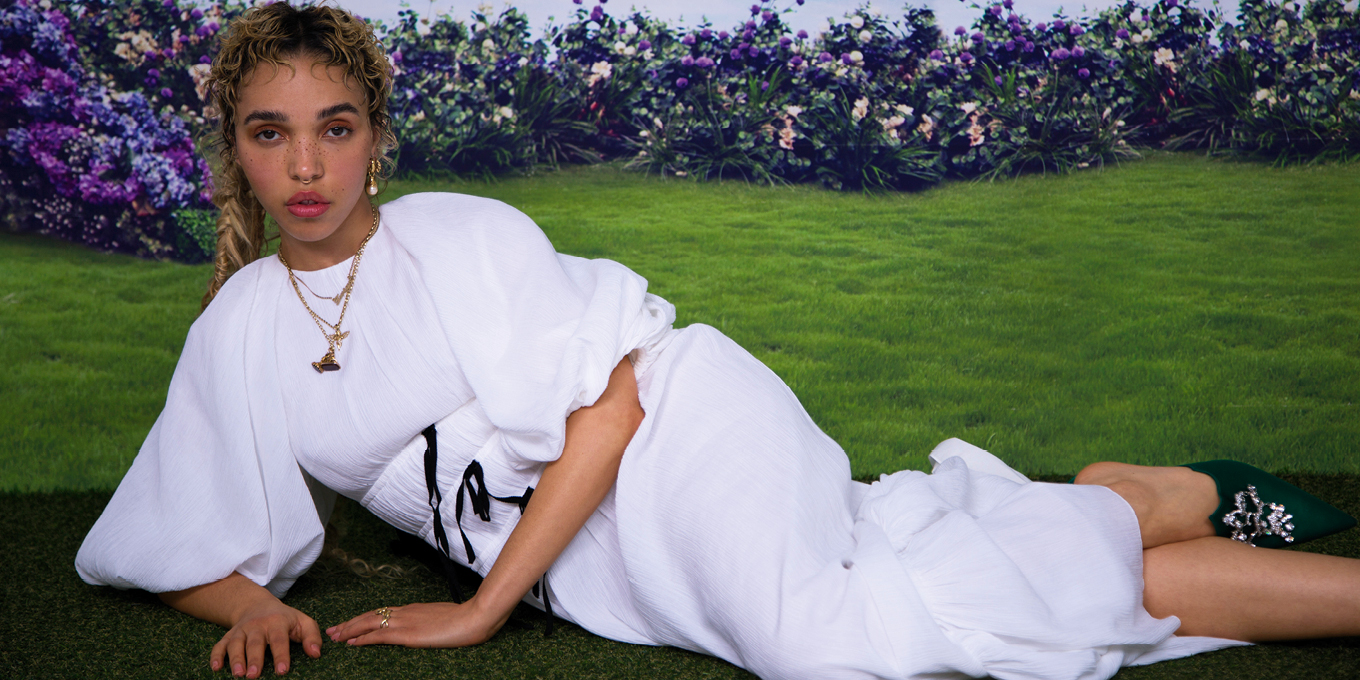
Ruth Ossai
“It's a miracle I came out alive,”
SAYS FKA TWIGS. The British singer, born Tahliah Debrett Barnett, has spent the past hour painfully recounting the abuse she endured for nearly a year at the hands of her former boyfriend and Honey Boy co-star, Shia LaBeouf. Sitting cross-legged on the floor of her London home, where she has been sequestered due to the COVID-19 tier-four lockdown, twigs manages to exude the raw vulnerability her audience has come to expect from her. An oversized hoodie that reads “janet”—an homage to Janet Jackson’s self-titled 1993 dance album—is thrown over her petite frame; her newly-bleached- blond curls appear damp, her cheeks flushed. While speaking to me over Zoom, she maintains perfect posture, fidgeting ever so slightly by tapping her long acrylic nails together. She is explaining the “calculated, systematic, tricky and mazelike” tactics LaBeouf would use to control her—the love bombing, the gaslighting, the social isolation, the sleep deprivation. “If you put a frog in a boiling pot of water, that frog is going to jump out straight away,” she says, attempting to explain the incremental and insidious nature of the abuse. “Whereas if you put a frog in cool water and heat up [the water] slowly, that frog is going to boil to death. That was my experience being with [LaBeouf].”
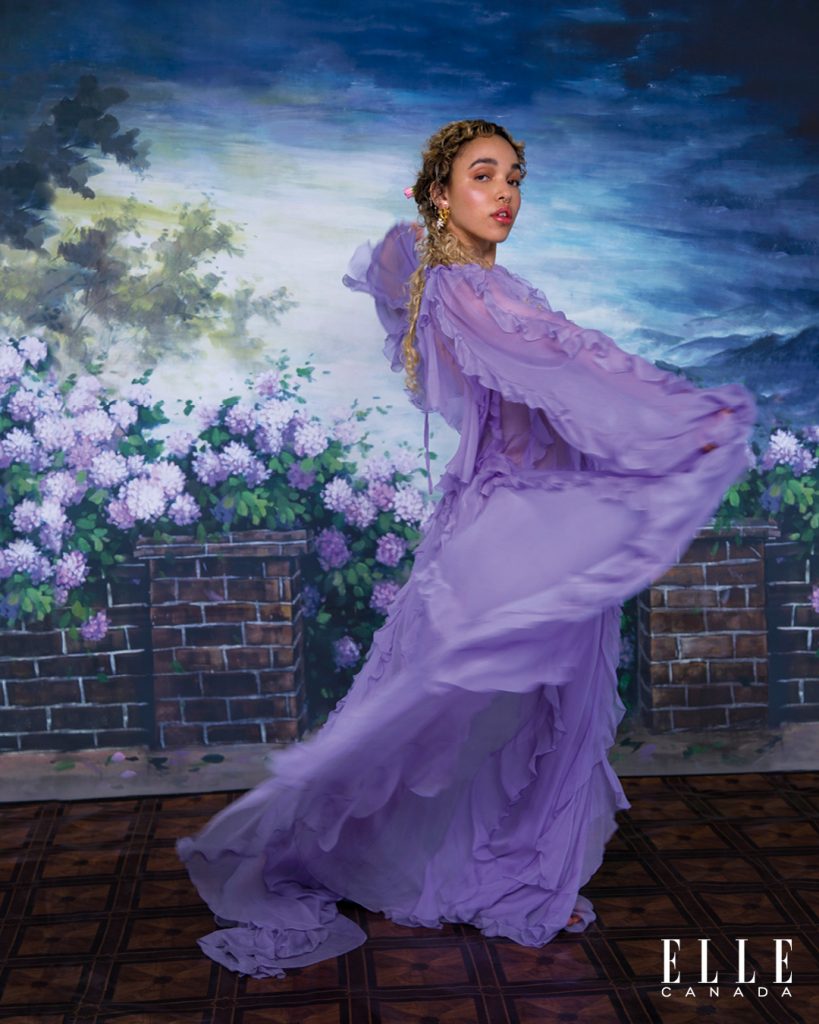 Ruth Ossai
Ruth OssaiGown (Valentino) ans jewellery (twigs' own).
The emotional, verbal and physical violence that twigs experienced during the course of their abusive relationship came to a head over Valentine’s Day weekend in 2019, after she and LaBeouf travelled to a hotel spa. The details of that fateful night are outlined in a shocking civil lawsuit she filed against the actor in December of last year. As she alleges in the complaint, after drifting off to sleep in the hotel, the singer awoke to find LaBeouf atop her, violently squeezing her arms. Putting his hands around her neck and beginning to strangle her, he whispered, “If you don’t stop, you are going to lose me.” The next morning, she claims, the abuse continued when LaBeouf threw her to the ground outside their hotel. Once inside his car and headed back to his Los Angeles home, she says, the actor began driving maniacally, demanding that twigs profess her love for him. As he swerved into traffic at an alarming speed, with cars beeping around them, twigs recalls bracing for the impact of the imminent crash. “I was thinking to myself, ‘I wonder what would happen to my body…if [we] smashed into a wall at 80 miles per hour?’ I was looking for the airbag and I couldn’t see the airbag sign, so I was thinking, ‘If he doesn’t have an airbag, will this car crush my sternum?’”
As twigs retells the story now, she is physically acting out each scenario, curling her taut dancer’s physique into a ball and covering her head with her hands. “I was thinking, ‘Oh, no—if I crouch like that and the front of the car crashes into my head, will it snap my neck?’” Her mind raced with terrifying possibilities. At one point, she considered jumping out of the vehicle as it barrelled down the highway. “Do I jump out of the car at 80 miles per hour?” she says. LaBeouf eventually pulled into a gas station; twigs attempted to remove her bags so she could escape, but the actor slammed her up against the car and tried to choke her again. Screaming in her face, he forced her back into the car.
I ask the singer how she narrowly survived this abusive relationship. “I think it was luck,” she says with a sigh. “I honestly wish I could say that I found some strength and I saw this light. I wish I could say ‘[It is] a testament to my strong character’ or ‘It’s the way my mother raised me.’ It’s none of that. It’s pure luck that I’m not in that situation anymore.”
“The biggest misconception is ‘Well, you’re smart. If it was that bad, why didn’t you leave?'”
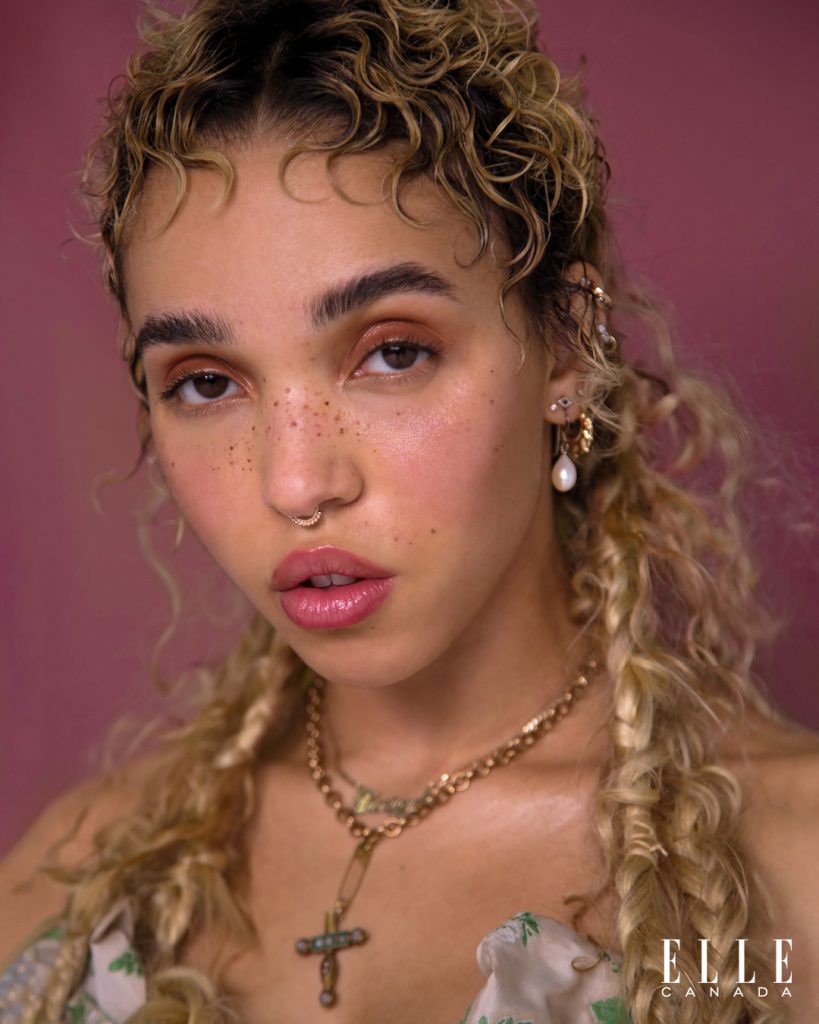 Ruth Ossai
Ruth OssaiDress (Andreas Kronthaler for Vivienne Westwood) and necklace (Slim Barrett).
At the time, twigs had a successful career, a home she could fly back to, financial security and a network of support. And yet she was in no way inoculated against abuse. “People wouldn’t think that it could happen to a woman like me,” she says. “The biggest misconception is ‘Well, you’re smart. If it was that bad, why didn’t you leave?’” Her response: “It can happen to anyone.” And when the lockdown began and she realized how many women were potentially stuck inside with their abusers, she got very anxious. “It made me realize I needed to come forward and talk about my experience.”
Growing up in Gloucestershire, England, the 33-year-old artist (who acquired the nickname “twigs” in childhood for the way her joints used to crack in dance class) was a bit of an outlier. As a child, twigs—who’s of Jamaican, Spanish and English descent—studied opera and dance. “I was the only Black girl in my hometown,” she says. “I fought to get to London. I fought to get to New York.” A mix of talent and hustle catapulted her out of her small village at 17, when she moved to South London to pursue a career as a dancer. Using the money she had earned working as a backup dancer for artists like Kylie Minogue and Jessie J, twigs was able to self-finance her first EP, aptly titled EP1, in December 2012. A year later, she worked with groundbreaking producer Arca to create her genre-defying follow-up, EP2. Her albums—which feature a mélange of voguing, wushu swordplay and pole dancing, buttressed by breathless vocals and experimental R&B beats—have earned her industry praise and comparisons to Björk. Like the singular artist, twigs takes a highly conceptual approach to her music. Take 2019’s Magdalene, an album that explores the fallout from her relationship with her ex-fiancé, Twilight’s Robert Pattinson, and the concessions that many female artists must make for the sake of their craft. Twigs paid painstakingly close attention to the details throughout the creative process, even developing a perfume with House of Matriarch that was inspired by the album’s titular biblical heroine.
“Recovering has been the hardest thing I’ve ever tried to do.”
Twigs and LaBeouf first met in the summer of 2018 on the set of Honey Boy, LaBeouf’s semi-autobiographical coming-of-age story, inspired by the events of the former Disney child star’s own traumatic childhood. Written during a court-mandated stay at a rehabilitation facility after a video of LaBeouf’s 2017 arrest in Savannah, Georgia, for public drunkenness and disorderly conduct went viral (LaBeouf, who appears to be drunk, launches into a racist tirade as officers book him), Honey Boy was already garnering buzz as an unflinching account of the trauma that had plagued the actor throughout his life. If played correctly, the film could have signalled a comeback for LaBeouf, whose volatile behaviour over the years—on-set and off—had diminished his chances of achieving leading-man status. In addition to his 2017 arrest, he had also been charged with a DUI in 2008 after his truck flipped in an early-morning collision. He refused a breathalyzer test and famously almost lost a finger. In 2014, the actor stumbled into a Broadway production of Cabaret and was picked up on a disorderly conduct charge during intermission. And let’s not forget his highly publicized marriage to Nymphomaniac: Volume II co-star Mia Goth, which was dogged by rumours of abuse after a 2015 public fight between the two was recorded in Germany. In footage captured by bystanders, LaBeouf can be heard telling a group nearby, “I don’t want to hit a woman, but I’m being pushed.”
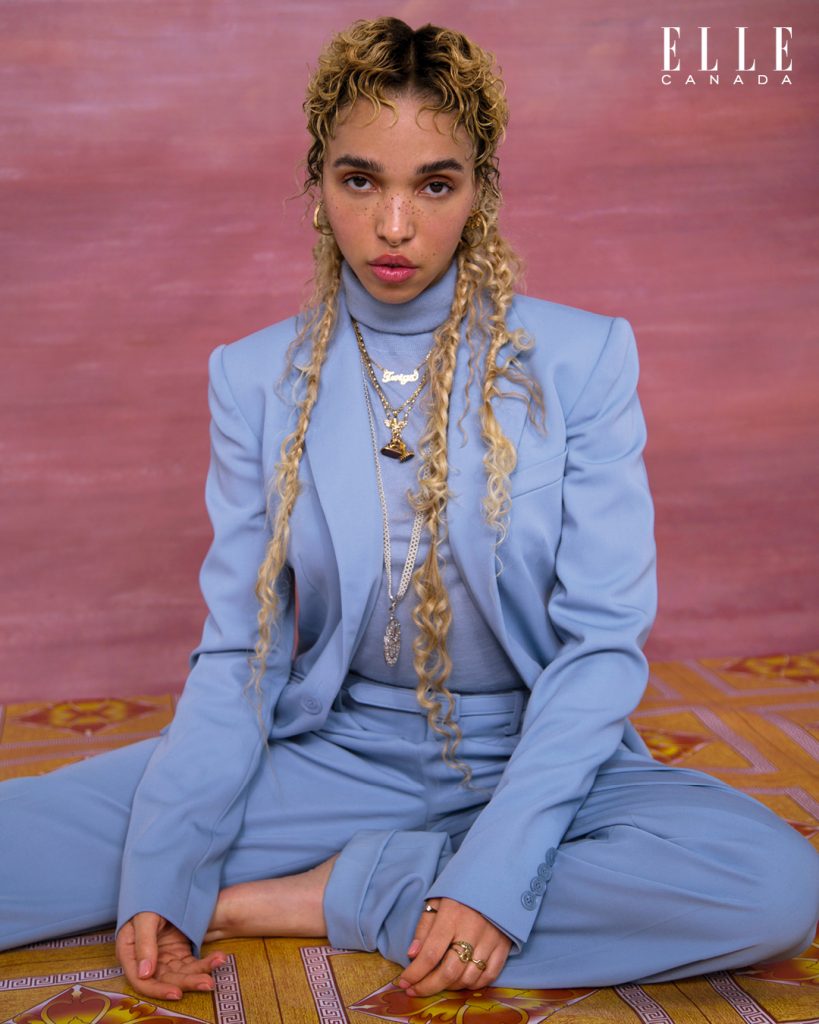 Ruth Ossai
Ruth OssaiJacket, turtleneck and trousers (Ralph Lauren Collection), hoop earrings (Cartier) and long antique pendant necklace (Bentley & Skinner).
To say LaBeouf has a checkered past would be an understatement. And to say he has barely been held accountable for many of his offences wouldn’t necessarily be a stretch, either. In response to the bad press over the years, the actor had cultivated an erratic “performance artist” persona; he was, people said, a method actor whose passion spilled over into his regular life. Scruffy and unkempt, with a self-described “blue-collar” panache that both Kanye West and Instagram fan pages famously studied with fervour, LaBeouf was Hollywood’s enfant terrible. And his well-documented substance-abuse problems are the stuff of lore. When he was a guest on Jimmy Kimmel Live! in 2019, the late-night-talk-show host made light of LaBeouf’s legal troubles. “Is it true that you keep in touch with the police officer that arrested you?” Kimmel asked, referring to the actor’s 2017 Georgia arrest. Then he burst into laughter.
Throughout the course of her relationship with LaBeouf, twigs was well aware of his legal woes and, like many victims, “sensitive to his recovery.” This is partly why she originally tried to settle matters privately with LaBeouf, approaching him with a list of demands after the relationship had dissolved. He would need to (1) seek meaningful and consistent professional help to address his abuse issues, (2) donate money to a shelter for abused women, (3) admit he had given twigs an STD and promise transparency about his sexual-health status with future sexual partners and (4) provide twigs with compensation for her grief. But negotiations stalled, with both parties’ legal teams claiming the other was to blame. Twigs’ lawyer Bryan Freedman put out a statement recently, saying LaBeouf was initially unwilling “to receive meaningful and consistent psychological treatment,” while the actor’s new legal representative, Shawn Holley, told Variety that “Shia immediately accepted responsibility for the many things he had done wrong” and that it was twigs’ legal team who had cancelled mediation.
Several months later, when twigs went public with her lawsuit, the case immediately struck a nerve. The singer’s audience was shocked. When watching twigs scale the pole in her video for “Cellophane,” one sees muscle and disciplined physicality, an athlete who bends but never breaks. Who knew she was quietly suffering? But many could relate all too well. Quickly, her audience began sharing their own stories of survival and thanking twigs for her honesty, prompting Australian singer and songwriter Sia, in a stunning twist, to tweet about her own first-hand experience with LaBeouf, whom she had cast in her 2015 “Elastic Heart” video. “I believe he’s very sick and I have compassion for him AND his victims. Just know, if you love yourself—stay safe, stay away,” read the tweet. Twigs thanked the megastar for showing solidarity.
On Instagram, actress and director Olivia Wilde also weighed in, writing, “Love, respect, and support @fkatwigs.” Weeks later, reports surfaced that Wilde had fired LaBeouf from the movie Don’t Worry Darling, replacing him with Harry Styles. According to Variety, the actor “displayed poor behavior and his style clashed with the cast and crew, including Wilde, who ultimately fired him.” Honey Boy’s director, Alma Har’el, issued her own statement, saying, “I have a deep respect for FKA twigs’ courage and resilience. Reading what she endured left me heartbroken and I stand with her in solidarity.”
LaBeouf also responded to the lawsuit filed against him, providing a statement to The New York Times that said: “I’m not in any position to tell anyone how my behavior made them feel. I have no excuses for my alcoholism or aggression, only rationalizations. I have been abusive to myself and everyone around me for years. I have a history of hurting the people closest to me. I’m ashamed of that history and am sorry to those I hurt. There is nothing else I can really say.” When approached by ELLE in early January for comment, LaBeouf was not available. One week later, LaBeouf’s lawyer filed a case management statement that said he is “willing to participate in mediation.”
Twigs hopes that by coming forward with her harrowing story, she can help end the culture of silence surrounding intimate partner violence (IPV).
Find the full story in the May issue of ELLE Canada — out on newsstands and on Apple News+ April 12th or read the digital issue. You can also subscribe for the latest in fashion, beauty and culture.
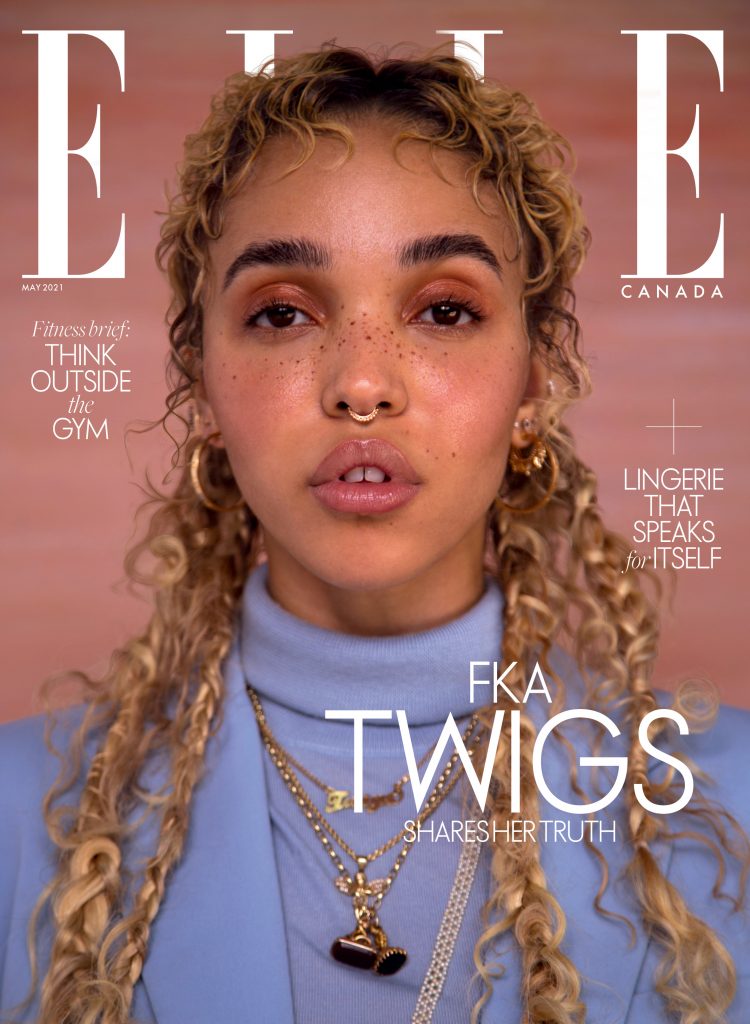 Ruth Ossai
Ruth OssaiPhotographer: Ruth Ossai; stylist: Matthew Josephs; hair: Rio Sreedharan (The Wall Group); makeup: Bea Sweet (Danessa Myricks Beauty); manicure: Imarni (The Wall Group); set design: Luke Kene; producer: Yasser Abubeker.
Newsletter
Join our mailing list for the latest and biggest in fashion trends, beauty, culture and celebrity.
Read Next
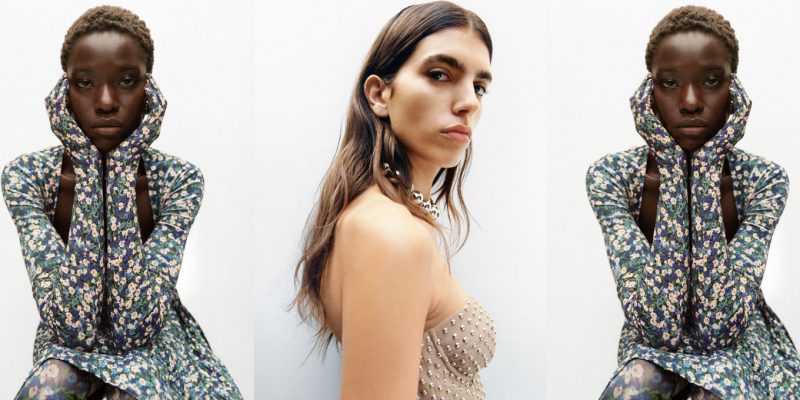
Fashion
H&M's Latest Designer Collab With Rokh Just Dropped (And It's So Good)
We chatted with the emerging designer about the collaboration, his favourite pieces and more.
by : Melissa Fejtek- Apr 18th, 2024

Culture
5 Toronto Restaurants to Celebrate Mother’s Day
Treat your mom right with a meal at any of these amazing restaurants.
by : Rebecca Gao- Apr 18th, 2024
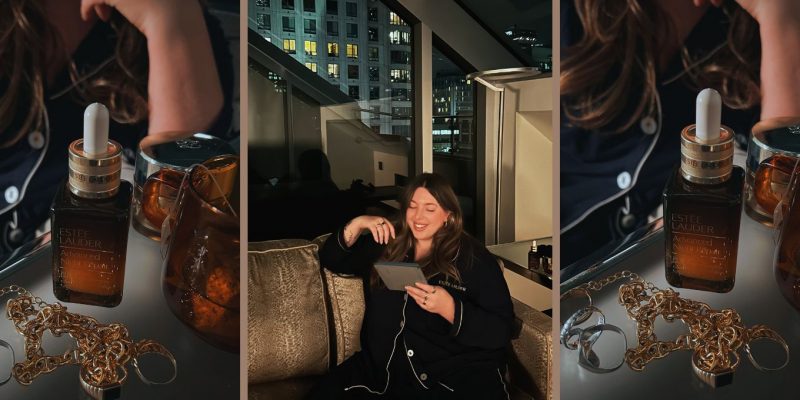
Beauty
Tested and Approved: A Skin Saviour That Works While You Sleep
Wake up with your glowiest skin yet—even if you didn’t clock eight hours.
by : ELLE Canada- Apr 11th, 2024


